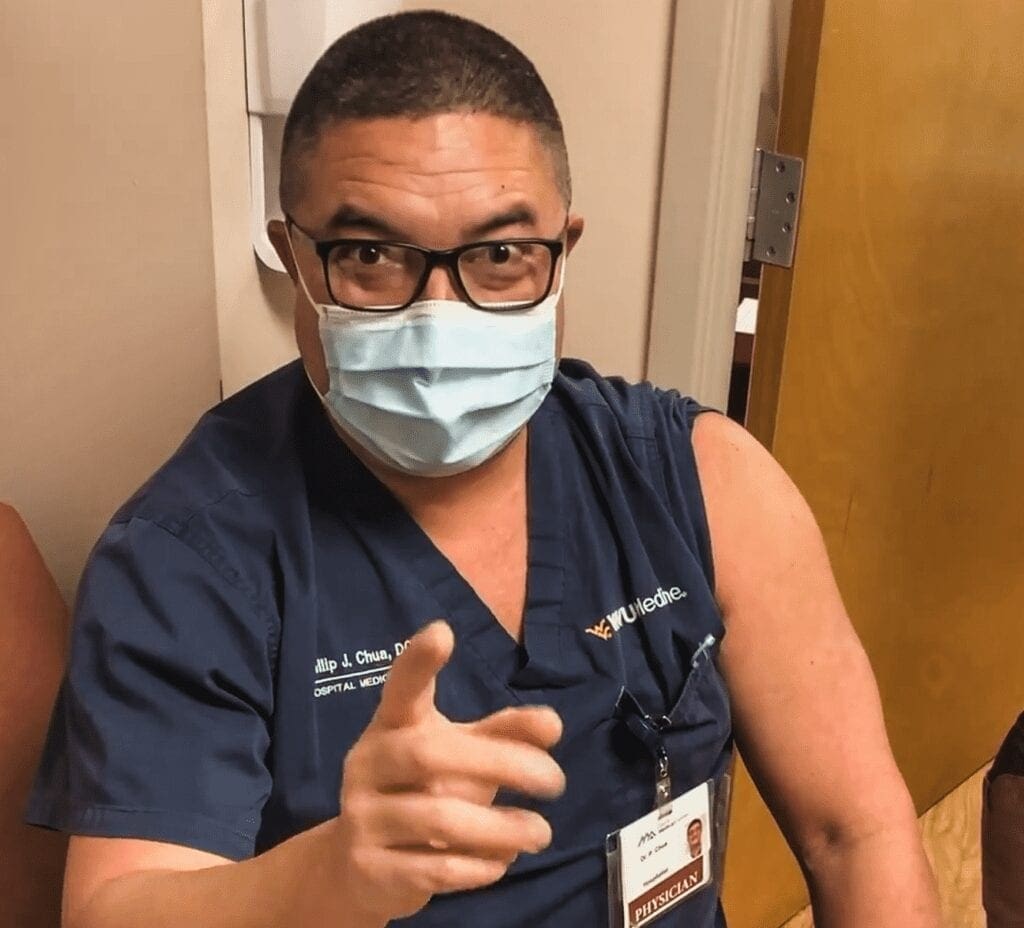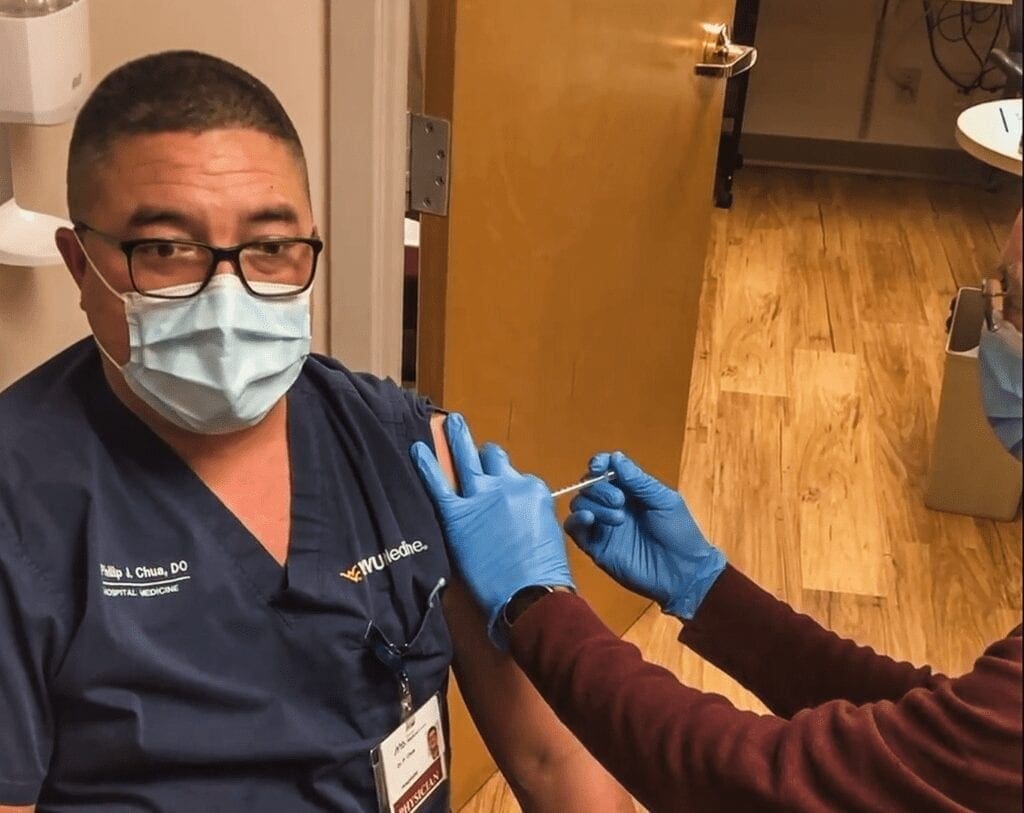Nine months ago, when most Americans were wondering if this thing called Covid something was real, and many individuals were having fun with the fact that it is a CORONAvirus
“Oh, it just gets ya drunk and makes ya vomit … .”
Well, not so much, and Dr. Philip Chua knew it from the beginning.
The physician works at Davis Medical Center in Elkins in Randolph County, W.Va., and Chua is a member of Linsly’s Class of 1988. Since the pandemic began in March, he has offered information and advice on social media concerning the symptoms, prevention, and the differences between the tests offered by the state’s health departments.
That’s why, when he had the opportunity to step forward and set an example for his coworkers and local residents, Dr. Chua rolled up his sleeve for Pfizer’s authorized vaccine on Tuesday. He even posted a video of him explaining the dose’s ingredients while receiving the first of two vaccinations.
“I didn’t fear getting the vaccine, but that doesn’t necessarily mean that I didn’t believe there could potentially be an adverse event,” he said. “With new therapies as you increase the number of people in a roll out like this, the chance that individuals may have adverse reactions increases.
“However, given this particular technology and our previous experience using it in oncology, the risk appears quite low when compared to the risk of getting seriously ill with Covid-19 and the chance that I could be exposed in my profession.”

A Rural Setting
Elkins is a historic city that has roots in the 19th Century. Relying on railroads, coal mines, and the timbering industries, the municipality’s population topped out above 9,000 during the 1950s. These days, Elkins is home to approximately 7,000 residents and is surrounded by the Appalachian Mountains.
To date, though, the Randolph County Health Department has recorded 969 positive cases of Covid-19 and three associated deaths. In comparison, 2,214 positive cases and 33 associated deaths have been counted in Ohio County.
“Elkins is bookended by two large corrections facilities. Huttonsville (HCC) and Tygart Valley Regional Jail,” Chua explained. “The first large outbreak was at HCC, and we had the ‘Myrtle beach’ outbreaks in the summer. Recently we have had the ‘Thanksgiving and deer camp outbreaks.’
“As far as ICU beds, early on we were able to transfer the more complicated patients (younger, more critically ill) to a tertiary center. That is no longer the case. Our ICU has been full or nearly full for close to one month,” he continued. “Many patients are from Randolph, Grant, Pocahontas, Barbour, Tucker, Upshur, and Webster counties, and all the tertiary centers are at critical bed status. Even non-Covid critical care patients can be difficult to move. It’s also a strain on the ambulance systems.”
Just as it’s been the case at Wheeling Hospital, Davis Medical Center has been a crowded medical facility during the pandemic, especially now since a third spike in coronavirus cases has caused W.Va. Gov. Jim Justice to consider restricting elective procedures for a second time in the Mountain State.
“As far as the regular medical and surgical beds, initially we were empty because we shut down routine and elective surgeries, and people were scared to come to the hospital,” Chua explained. “Midway through then and now we resumed routine clinic and surgeries, so the census increased. Currently we are at or close to capacity with, at times, 40-50 percent COVID-19 patients.
“When they get ill, it means they generally have low oxygen levels and there’s high oxygen demand,” he said. “They stay ill sometimes for weeks which ties up beds. Get a few of those, and your beds dry up quickly.”

Vaccine Rollout
Although West Virginia was the last state in the country to officially record a positive Covid-19 case, the numbers have grown to over 68,000 with 1,071 associated deaths. This morning, the state Department of Health and Human Resources reported 1,636 new confirmations and 32 related deaths.
Pfizer’s vaccine was the first approved by the Federal Drug Administration early last week, and distribution began in West Virginia over the weekend. Since Chua received the first of two doses on Dec. 15, he will need the second on Jan. 5, 2021, to reach the 95 percent efficacy reported by the pharmaceutical corporation.
And yes, it is likely Chua will post a second video.
“I decided to make the video for our local population,” he said. “I grew up in Elkins, and I think I’m relatively well-known as a reasonable person and reasonable physician. I think I am generally a reliable source of information. I am a little surprised at the number of shares of the video.”
So, how’s Dr. Chua feeling following Dose No. 1? Any adverse effects like the ones reported in Alaska and England?
“I have had no side effects,” the physician reported. “I did have mild injection site discomfort the first night, but it has resolved. I’ve experienced no body aches or any upper respiratory symptoms either.”


